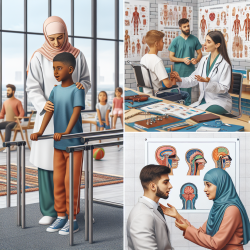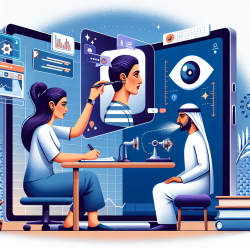As practitioners in the field of speech-language pathology and physiotherapy, we constantly strive to enhance our skills and provide the best possible care for children with special needs. A recent study titled "South African physiotherapists’ perspectives on the competencies needed to work in special schools for learners with special needs" offers valuable insights that can guide us in improving our practice. This blog will delve into the key findings of this research and provide actionable steps to implement these competencies in our daily work.
Key Findings from the Research
The study employed a sequential mixed-method research design to explore the competencies required by physiotherapists working in special schools. Focus group discussions (FGDs) and a cross-sectional survey revealed several critical areas where competencies are either well-developed or lacking:
- Good to Very Good Knowledge and Skills: Physiotherapists demonstrated strong knowledge and skills in physiotherapy theories and their implementation.
- Poor Integration: Integration of therapeutic knowledge and skills into the special educational environment and community settings was rated from 'poor' to 'fair'.
- Support and Professional Development: Support for implementing policies and procedures and opportunities for continuing professional development (CPD) were rated 'fair' to 'poor'.
Steps to Improve Competencies
Based on the findings, here are some steps practitioners can take to improve their competencies in special education settings:
- Enhance Knowledge of Educational Policies: Familiarize yourself with educational policies such as the Education White Paper 6 on Special Needs Education. Understanding these policies will help integrate therapeutic strategies more effectively into the educational environment.
- Seek Continuing Professional Development: Engage in CPD activities that focus on the integration of physiotherapy and educational strategies. This can include workshops, online courses, and peer collaborations.
- Collaborate with Educators: Work closely with educators to develop individualized education programs (IEPs) that incorporate therapeutic goals. Effective communication and teamwork are crucial for successful integration.
- Community Engagement: Participate in community-based programs to better understand the local resources available for children with special needs. This will aid in creating a more holistic approach to therapy.
Encouraging Further Research
While the study provides a solid foundation, further research is essential for continuous improvement. Practitioners are encouraged to participate in research projects, share their experiences, and contribute to the development of competency frameworks tailored to their specific contexts.
To read the original research paper, please follow this link: South African physiotherapists’ perspectives on the competencies needed to work in special schools for learners with special needs.










